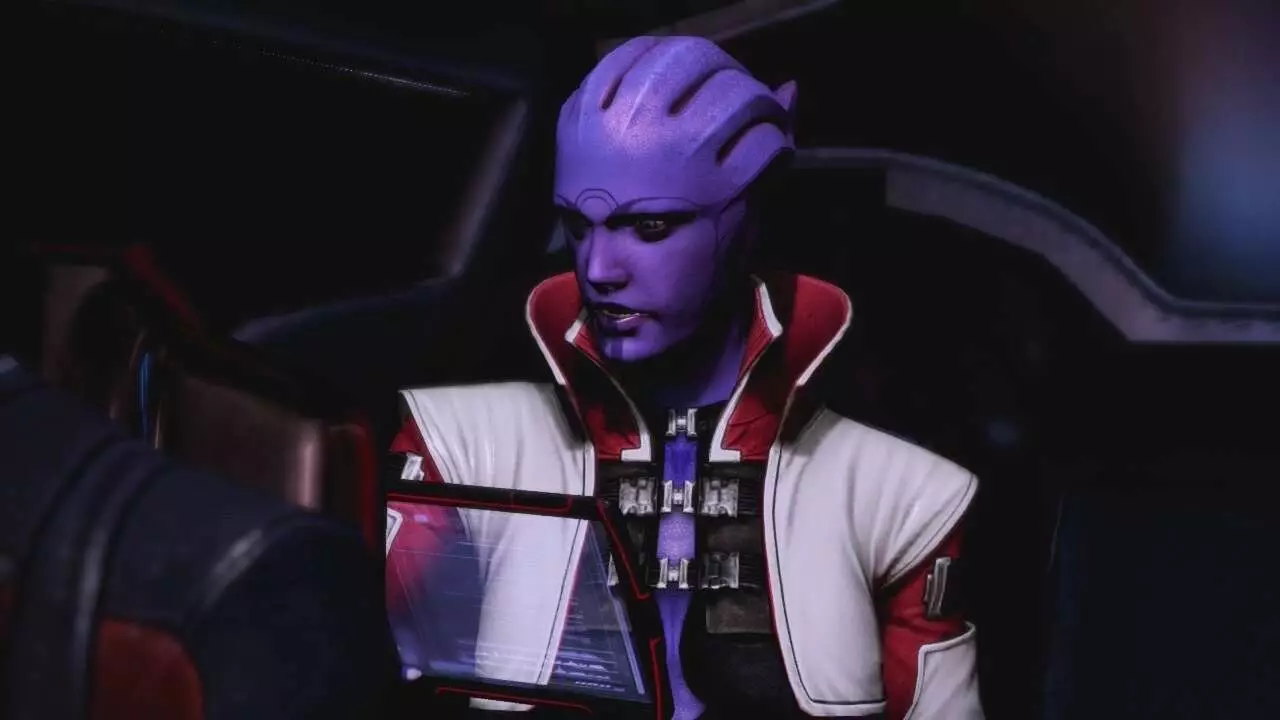The universe of Mass Effect, a franchise that has captivated gamers for over a decade, is finally making the jump to television. A project long anticipated and intermittently stalled, it seems that the Mass Effect TV series is approaching a definitive moment of realization, particularly with Amazon MGM Studios stepping up to the plates in November 2024. With the involvement of seasoned writer and showrunner Doug Jung, known for his contributions to Netflix’s chilling Mindhunter and Star Trek Beyond, expectations are set high for this adaptation.
Jung is no stranger to weaving complex narratives that explore the intricate psychology of his characters. His directorial success on Apple TV+’s Chief of War suggests that he possesses the skill set to manage multiple creative demands. A showrunner essentially acts as the captain of the ship, responsible for steering artistic vision while also managing logistical realities—a feat that will undoubtedly redefine the storytelling experience of Mass Effect.
Understanding the Role of a Showrunner
The concept of a showrunner may often fly under the radar for casual viewers, yet it is a pivotal element in the success of any television series. More than just a mastermind behind the scenes, they are the heart and soul of a production. Consider Craig Mazin’s work on HBO’s The Last of Us; he not only oversees the writing and production but ensures the narrative resonates with audiences emotionally. As Mass Effect embarks on this adventure toward television, a successful showrunner can make or break its impact.
Doug Jung’s dual responsibilities could seem overwhelming. However, if Chief of War is nearing its conclusion, he might find ways to compartmentalize his tasks effectively. This multitasking may even lend itself to a richer storytelling experience, as the crossover of creative perspectives often leads to innovative ideas. His background gives a promising glimpse into the kind of character-driven storytelling fans can expect, translating the complexities of Mass Effect’s universe onto the small screen.
A Legacy of High Expectations
The journey to this point has been fraught with uncertainty. Initially announced in 2021 when Amazon was inching towards securing the rights, the show has gone through various phases of development. With Daniel Casey from the Fast & Furious franchise working alongside the creative team—as well as input from BioWare’s own Michael Gamble—the potential for a show that satisfies both fans and newcomers seems more tangible than ever. Still, anticipation comes with its share of skepticism, especially considering the pitfalls oftentimes encountered when beloved video games transition to other media.
One of the critical observations made by BioWare veteran Mac Walters emphasizes the narrative depth in Mass Effect, making it suit episodic storytelling far more than a standalone film. Each character, every choice, and the nuanced moral quandaries could warrant exploration across multiple episodes, allowing for a depth often sacrificed in cinematic adaptations.
The Universe Awaits: Plot Aspirations and Challenges
However, details surrounding the plot remain shrouded in mystery, leading fans to speculate wildly about which narratives will be woven into the series. The thematic elements surrounding Commander Shepard and their life-altering decisions effectively reshape the fate of the galaxy. If crafted well, these character arcs offer rich material for storytelling, enabling a profound emotional connection that is fundamental to the series’ legacy.
Yet, uncertainty looms; while the groundwork lays promisingly, fans are all too aware of disasters like the adaptations of Assassin’s Creed and Warcraft that failed to capture the spirit of their source material. The challenge lies in maintaining fidelity to the essence of Mass Effect while exploring fresh, engaging narratives that stand on their own.
The Path Forward: Influence and Expectations
As Amazon navigates the complexities of adapting interactive narratives for the screen, the industry watches closely. With projects like Fallout and God of War also underway, audiences will be scrutinizing how Mass Effect will stand out in a crowded landscape. The recent resurgence of interest in the franchise, coupled with a new game on the horizon, positions the series not just as a standalone project, but as part of a larger narrative renaissance that could relaunch Mass Effect into the cultural zeitgeist.
In such an era of storytelling innovation, the potential for a Mass Effect series can inspire a new cohort of fans, alongside deepening the relationship with long-time enthusiasts. As the universe’s rich lore expands beyond pixels and controller buttons, the journey ahead is indeed thrilling—if only we remain faithful to what made the original narrative remarkable.

